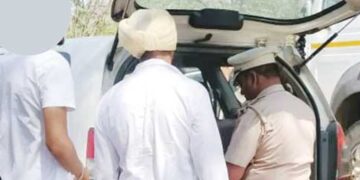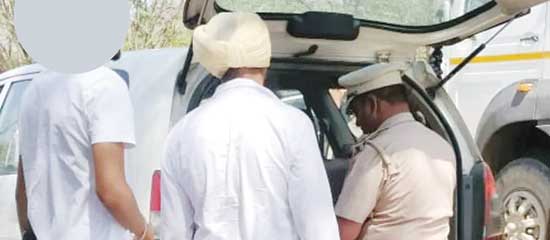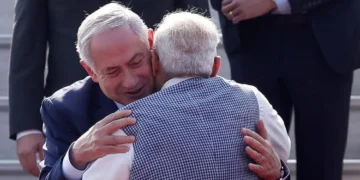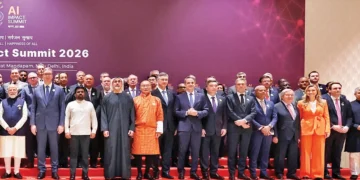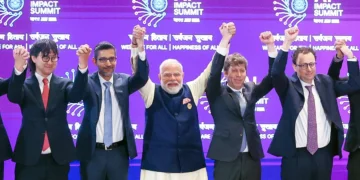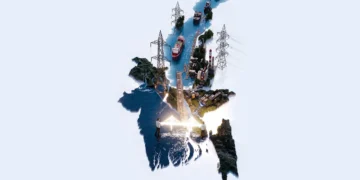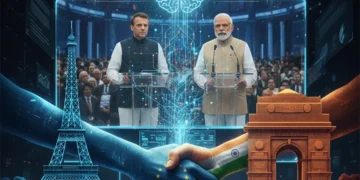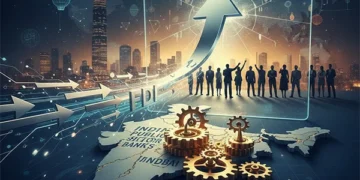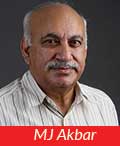 ARE we witnessing a 1982 moment? This is the question that should be on the radar of national concern. No one in Government was particularly bothered in 1982 when Delhi Police began to frisk Sikhs in buses and cars entering Delhi before the scheduled Asian Games. The troubles of Punjab made all Sikhs suspect in the eyes of the Congress Government in Delhi. If every passenger had been searched, as happens now at airports, there would have been no problem. That would not have been discrimination. But Sikhs were identified, and their self-respect demeaned. It led to anger in the community and spurred radicalisation within specific coteries or groups.
ARE we witnessing a 1982 moment? This is the question that should be on the radar of national concern. No one in Government was particularly bothered in 1982 when Delhi Police began to frisk Sikhs in buses and cars entering Delhi before the scheduled Asian Games. The troubles of Punjab made all Sikhs suspect in the eyes of the Congress Government in Delhi. If every passenger had been searched, as happens now at airports, there would have been no problem. That would not have been discrimination. But Sikhs were identified, and their self-respect demeaned. It led to anger in the community and spurred radicalisation within specific coteries or groups.
Even Sikhs who had served in the Indian Army, and what could be better evidence of patriotism, were not spared. In a shocking incident, Major General Shabeg Singh, PVSM, AVSM, of the Garhwal Rifles, a hero of wars fought by India in 1947, 1962, 1965 and 1971 was forced to leave his Delhi home in 1982 because he was considered, astonishingly, a security risk. He joined Sant Bhindranwale as his military commander, and displayed his capability in the fighting during Operation Blue Star. History is in no hurry to exact the price of mistakes. But it does not forget.
High priority for PM
These three results have to become a very high priority for Prime Minister Narendra Modi and his core security team as he begins the third term. This danger can be resolved through wisdom, and a judicious combination of political and administrative measures. The delusion, the evasion of responsibility, or the rough partisan measures adopted by the thick-skinned and thin-brained establishment of 1982 will be counterproductive. A fresh mind, a different eye are required to gauge rapidly shifting perspectives. Business-as-usual is the recipe of the complacent.
Every result has a meaning. The economic wellbeing of hundreds of millions of Indians has improved beyond measure in the last decade. This is why BJP got 240 seats. But gaps can be measured in statistics.
BJP’s vote share rose from 33 per cent in 2019 to 40 per cent in urban areas, which is extraordinary by any standards. But it dipped from 39.5 per cent to 35 per cent in rural India despite the remarkable support that Prime Minister Modi received from rural women who thanked him for rations and saw better governance. But the young moved away because of stagnant employment opportunities, and disconnect.
Slippage in tribal areas
The rural vote-drop is the statistical equivalent of a 63-seat drop. The defeat of Cabinet Minister Arjun Munda is another indication of slippage in the tribal areas of Jharkhand. There is much to repair. The greatest danger, however, lies in the northwest of our country. There is no quick fix. There is no magic mantra. There is immediate need for sympathy, clarity, concern and where required, strength. It is not good policy to be provoked by provocateurs; equally, the real enemy of the state required proportionate chastisement.
We witnessed the political earthquake which undermined Punjab in the 1980s. We watched as Jammu & Kashmir, restored to peace and democratic participation in the 1970s, slipped out of control by a colossal mistake in 1987 when Congress and the National Conference became allies and rigged the polls to continue in power. The people never forgave either party, but that was less important than the instant escalation of violence, mainly sponsored by elements in Pakistan, that destroyed the amity of the Valley and drove Kashmiri Pandits out of their homes. The repercussions continue to reverberate.
Credibility of democracy
The outstanding fact of the 2024 Elections is the triumph of the credibility of Indian democracy. No one disrupted the will of the people. No one wanted to even if they could. People in public life may become kings for five years, but the voter is true monarch on the day of the mandate. One of the most incongruous accusations against the Government, fanned by the innate prejudices of many foreign journalists, was that India was no longer a democracy. You have to be blind, or stupid, to say this in the midst of the most vibrant and largest election in the annals of democracy.
Democracy demands delivery. Every book on politics has some advice somewhere on how to govern. The best thesis I have read is just a paragraph, not a book. It is attributed to a 7th-Century Umayyad Caliph, Muawiya ibn Sufiyan, who ruled from Damascus: “I do not use my lash where my tongue suffices, nor my sword where my whip is enough. And if there be one hair binding me to my fellow men, I do not let it break. If they pull I loosen, and if they loosen I pull.”
In a democracy the day of the vote is only a culmination point. Democracy is a daily relationship of trust, faith, interaction and learning between power and the people. Democracy is not a dance, but it is a careful choreography of partnership in which the people show the way and the Government charts the route map to that always elusive horizon where there is reasonable calm, sufficient food, and the promise of a better future.
